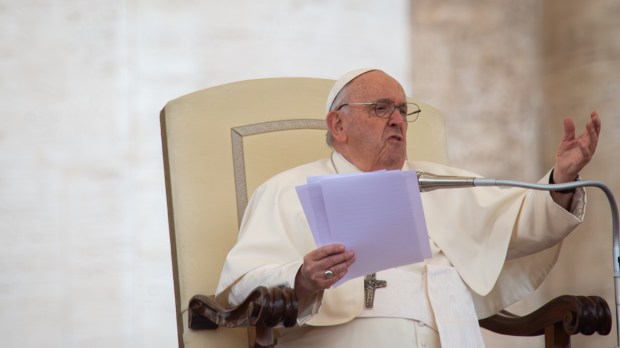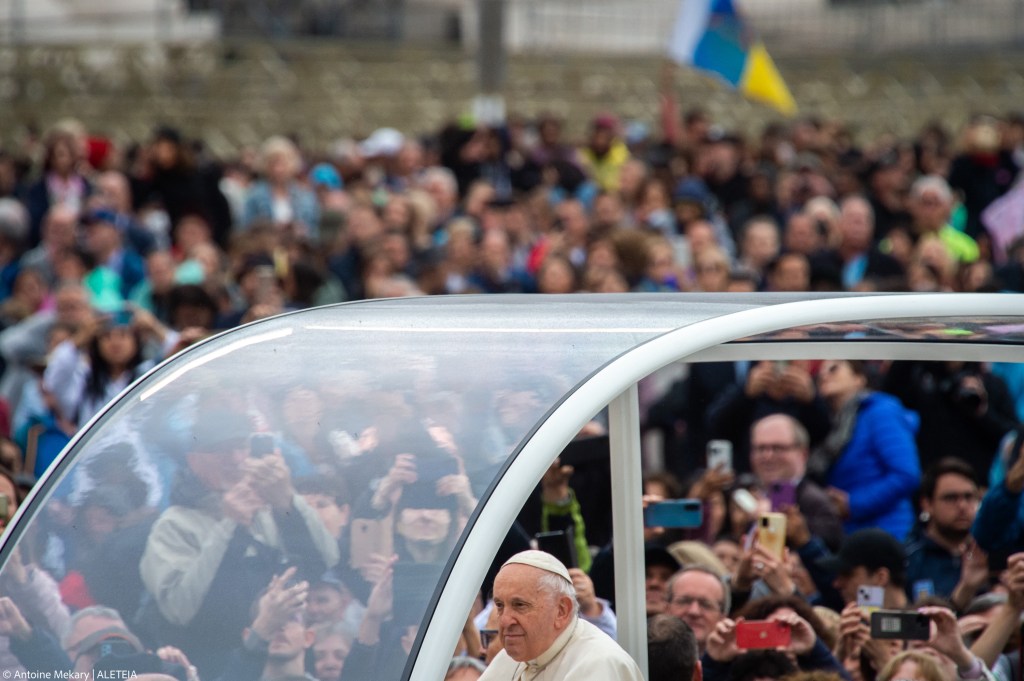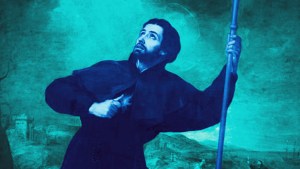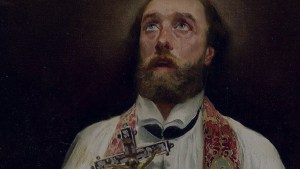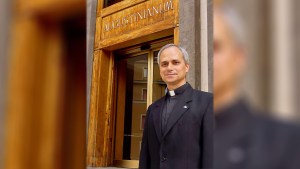Continuing with his Wednesday audience catecheses on the theme of “apostolic zeal,” Pope Francis this May 17 considered the example of St. Francis of Xavier. While St. Francis, along with St. Thérèse of Lisieux, is a patron of missions, Pope Francis said he isn’t the greatest missionary of modern times.
“We are speaking about evangelization, about apostolic zeal, of bearing the name of Jesus. And there are many women and men in history who have done this in an exemplary way,” the Pope said.
Today, for example, we choose as an example, Saint Francis Xavier, who some say is considered the greatest missionary of modern times. But it is not possible to say who is the greatest, who is the least. There are so many hidden missionaries who, even today, do much more than Saint Francis Xavier.
The Pope went on to note how “there are many, many priests, lay people, women religious who go to the missions.”
This is incredible – to leave your own country to preach the Gospel. This is apostolic zeal. This is what we really need to cultivate. And looking at these men and women, we learn.
The Pope expressed his satisfaction that there are candidates to become bishops who have spent time as missionaries.
He then went on to highlight various elements of the history of St. Francis of Xavier, who was born in Spain in 1506, and became, like Pope Francis himself, a member of the Jesuits.
Here are some of the aspects the Pope noted:
111 years a missionary
In just under eleven years, he accomplished an extraordinary task. He was a missionary for more or less eleven years. Journeys at that time were harsh and perilous. Many people died enroute, due to shipwrecks or disease. Today unfortunately, they die because they let them die in the Mediterranean. Francis Xavier spent more than three and a half years on ships, a third of the entire duration of his mission. To get to India, he spent three and a half years on ships; then from India to Japan. How touching.
2Called beyond India
… While praying one night at the tomb of the apostle Saint Bartholomew, he felt he needed to go beyond India. He left the work he had already initiated in good hands – this is good, organization – and courageously set sail for the Moluccas, the most distant islands of the Indonesian archipelago. … What courage these holy missionaries had! And today’s missionaries too. Of course, they do not spend three months on a ship, but go on a plane for 24 hours. But it is the same thing there …
3Taught the Catechism with song
… He translated the catechism into their local language and taught them how to sing the catechism, he entered through song. We understand his feelings from his letters. He wrote: “Dangers and sufferings, accepted voluntarily and solely for the love and service of God our Lord, are treasures rich in tremendous spiritual consolations. Here, in a few years, someone could lose their eyes from so many tears of joy” (20 January 1548). He cried for joy when beholding God’s work.
4Highly symbolic death
On 3 December 1552, he died in total abandonment, with only a Chinese man standing beside to watch over him. Thus ended the earthly journey of Francis Xavier. He had spent his life zealously in the missions. He left Spain, a highly developed country, and arrived in the most developed country at that time – China – and died at the threshold of great China, accompanied by a Chinese man. It is highly symbolic, highly symbolic.
5An invitation to youth
So many young people, so many young people today have something … a restlessness … and they do not know what to do with that restlessness. Look to Francis Xavier, look at the horizons of the world, look at the people who are in such need, look at how many people are suffering, so many people who need Jesus. And have the courage to go.
